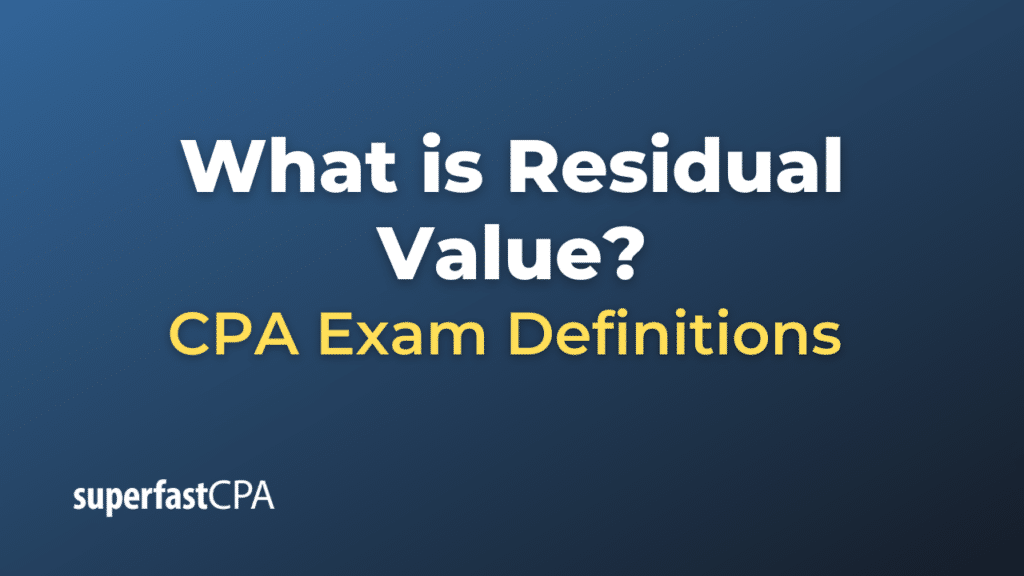Residual Value
Residual value, in the context of finance and accounting, refers to the estimated value of an asset at the end of its useful life. It’s sometimes also known as “salvage value” or “scrap value.” This concept is crucial in various areas, including depreciation accounting and leasing.
There are a couple of primary contexts in which you might encounter the term “residual value”:
- Depreciation Accounting: When businesses buy assets that lose value over time (like machinery or vehicles), they can’t expense the entire cost of the asset in the year of purchase. Instead, they spread the cost over the asset’s useful life using depreciation. The residual value is an estimate of what the asset will be worth at the end of its depreciable life. For example, if a company buys a machine for $10,000 and expects it to have a residual value of $1,000 after five years, the depreciable amount would be $9,000 over those five years.
- Leasing: If you’ve ever leased a car, the residual value plays a vital role. It’s the estimated value of the car at the end of the lease term. When you lease a car, you’re essentially paying for its depreciation over the lease period. The difference between the car’s initial price and its residual value determines a significant portion of your lease payments. For instance, if a car is worth $30,000 new and has a residual value of $18,000 after three years, your lease payments will largely be based on that $12,000 difference.
It’s important to note that estimating residual value isn’t an exact science. Factors such as technological changes, market conditions, and the overall condition of the asset can influence its actual value at the end of its useful life.
Lastly, in some depreciation methods, like the straight-line method, the asset is depreciated down to its residual value. In others, like declining balance methods, the residual value may not be directly considered in the depreciation calculations, though the asset’s book value will not be depreciated below its residual value.
Example of Residual Value
Let’s use the example of car leasing to illustrate the concept of residual value:
Emma is considering leasing a car. The car has an initial price (often called the capitalized cost) of $25,000. The lease term is 3 years.
The leasing company, based on their analysis of market trends, estimates that this car will be worth $15,000 at the end of the 3-year lease term. This $15,000 is the residual value.
Emma’s lease payments will largely be based on the difference between the car’s initial price and its residual value, plus interest and fees. In simple terms:
Depreciation Over the Lease Term = Capitalized Cost − Residual Value
Depreciation Over the Lease Term = $25,000 – $15,000 = $10,000
So, over the 3-year lease, Emma is essentially paying for the $10,000 worth of depreciation on the car, plus interest and any fees. If we divide this evenly over 36 months (ignoring interest and fees for simplicity):
Monthly Payment = Depreciation Over the Lease Term / Number of Months
Monthly Payment = $10,000 / 36 = $277.78
With this calculation, before considering interest and fees, Emma would pay roughly $277.78 per month to lease the car. Remember, in a real-world scenario, there would be other factors like interest, taxes, and fees, which would affect the monthly lease payment.
At the end of the lease term, Emma has the option to buy the car for its residual value, which was estimated to be $15,000. If the car’s market value at that time is significantly higher than $15,000, it might be a good deal for her. On the other hand, if the car’s market value is lower, she’d probably opt to return the car and leaseWhat is a Lease? or buy a new one.
This example illustrates how the residual value is crucial in determining lease payments and the potential value of the asset (in this case, a car) at the end of a lease term.













